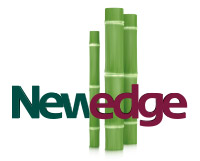
Derivative is a product whose value is derived from the value of one or more variable called bases(underlying assets). This underlying entity can be an asset, index, or interest rate, and is often simply called the "underlying". Derivatives can be used for a number of purposes, including insuring against price movements (hedging), increasing exposure to price movements for speculation, or getting access to otherwise hard-to-trade assets or markets. Some of the more common derivatives include forwards, futures, options, swaps, and variations of these such as synthetic collateralized debt obligations and credit default swaps. Most derivatives are traded over-the-counter (off-exchange) or on an exchange such as the Chicago Mercantile Exchange, while most insurance contracts have developed into a separate industry. In the United States, after the financial crisis of 2007–2009, there has been increased pressure to move derivatives to trade on exchanges.

The derivatives market is the financial market for derivatives, financial instruments like futures contracts or options, which are derived from other forms of assets.

The Commodity Futures Modernization Act of 2000 (CFMA) is United States federal legislation that ensured financial products known as over-the-counter (OTC) derivatives remained unregulated. It was signed into law on December 21, 2000 by President Bill Clinton. It clarified the law so most OTC derivative transactions between "sophisticated parties" would not be regulated as "futures" under the Commodity Exchange Act of 1936 (CEA) or as "securities" under the federal securities laws. Instead, the major dealers of those products would continue to have their dealings in OTC derivatives supervised by their federal regulators under general "safety and soundness" standards. The Commodity Futures Trading Commission's (CFTC) desire to have "functional regulation" of the market was also rejected. Instead, the CFTC would continue to do "entity-based supervision of OTC derivatives dealers". The CFMA's treatment of OTC derivatives such as credit default swaps has become controversial, as those derivatives played a major role in the financial crisis of 2008 and the subsequent 2008–2012 global recession.

Over-the-counter (OTC) or off-exchange trading is done directly between two parties, without the supervision of an exchange. It is contrasted with exchange trading, which occurs via exchanges. A stock exchange has the benefit of facilitating liquidity, providing transparency, and maintaining the current market price. In an OTC trade, the price is not necessarily publicly disclosed.

The Depository Trust & Clearing Corporation (DTCC) is an American post-trade financial services company providing clearing and settlement services to the financial markets. It performs the exchange of securities on behalf of buyers and sellers and functions as a central securities depository by providing central custody of securities.

In banking and finance, clearing denotes all activities from the time a commitment is made for a transaction until it is settled. This process turns the promise of payment into the actual movement of money from one account to another. Clearing houses were formed to facilitate such transactions among banks.

The Stock Exchange of Thailand, or SET, is the major and only stock exchange in Thailand. SET is ASEAN’s second largest stock exchange by market capitalization at US$473,000,000,000 as of June 2020, but it is crowned as the biggest IPO market in the region with accumulated fund amounting to USD 17.8 billion raised during 2015 to June 2020. SET is also ASEAN’s most active bourse with the average daily trading turnover of USD 2.16 billion as of June 2020. At the end-2019, there were 556 companies listed on SET, 169 on Market for Alternative Investment (mai) and 228 bonds on Thailand Bond Exchange (TBX). Other types of securities including warrant, derivative warrant (DW), depositary receipt (DR), exchange-traded fund (ETF), real estate investment trust (REIT) and infrastructure fund are also listed on SET. SET President Pakorn Peetathawatchai has taken the helm since June 1,2018.

Security market is a component of the wider financial market where securities can be bought and sold between subjects of the economy, on the basis of demand and supply. Security markets encompasses stock markets, bond markets and derivatives markets where prices can be determined and participants both professional and non professional can meet.

Novation, in contract law and business law, is the act of –
- replacing an obligation to perform with another obligation; or
- adding an obligation to perform; or
- replacing a party to an agreement with a new party.

Hong Kong Exchanges and Clearing Limited operates a range of equity, commodity, fixed income and currency markets through its wholly owned subsidiaries The Stock Exchange of Hong Kong Limited (SEHK), Hong Kong Futures Exchange Limited (HKFE) and London Metal Exchange (LME).

Options Clearing Corporation (OCC) is a United States clearing house based in Chicago. It specializes in equity derivatives clearing, providing central counterparty (CCP) clearing and settlement services to 16 exchanges. Started by Wayne Luthringshausen and carried on by Michael Cahill, trust in the company was built. Instruments include options, financial and commodity futures, security futures and securities lending transactions.

The Intercontinental Exchange (ICE) is an American Fortune 500 company formed in 2000 that operates global exchanges, clearing houses and provides mortgage technology, data and listing services. The company owns exchanges for financial and commodity markets, and operates 12 regulated exchanges and marketplaces. This includes ICE futures exchanges in the United States, Canada and Europe, the Liffe futures exchanges in Europe, the New York Stock Exchange, equity options exchanges and OTC energy, credit and equity markets.
An Inter-dealer broker (IDB) is specialist financial intermediary that facilitates transactions between broker-dealers, dealer banks and other financial institutions rather than private individuals.
A central clearing counterparty (CCP), also referred to as a central counterparty, is a financial institution that takes on counterparty credit risk between parties to a transaction and provides clearing and settlement services for trades in foreign exchange, securities, options, and derivative contracts. CCPs are highly regulated institutions that specialize in managing counterparty credit risk.

Newedge Group is a global multi-asset brokerage that was formed in 2008 from the merger of Fimat and Calyon Financial, the brokerage arms of French financial companies Société Générale and Credit Agricole, respectively. It offers execution, clearing, and prime brokerage services. Newedge is one of the world's largest futures commission merchants (FCM) and has locations in 14 countries. Newedge, which primarily serves institutional clients, provides access to more than 85 exchanges and employs approximately 2,400 associates.
The Tokyo Financial Exchange is a futures exchange and established in April 1989 under the Financial Futures Trading Law of Japan. It principally deals in financial instrument markets that handles securities as well as market derivatives.
LCH is a British clearing house group that serves major international exchanges, as well as a range of OTC markets. The LCH Group consists of two subsidiaries: LCH Ltd and LCH SA. Based on 2012 figures, LCH cleared approximately 50% of the global interest rate swap market, and was the second largest clearer of bonds and repos in the world, providing services across 13 government debt markets. In addition, LCH clears a broad range of asset classes including: commodities, securities, exchange traded derivatives, credit default swaps, energy contracts, freight derivatives, interest rate swaps, foreign exchange and Euro and Sterling denominated bonds and repos.
A Trade Repository or Swap Data Repository is an entity that centrally collects and maintains the records of over-the-counter (OTC) derivatives. These electronic platforms, acting as authoritative registries of key information regarding open OTC derivatives trades, provide an effective tool for mitigating the inherent opacity of OTC derivatives markets.
The European Market Infrastructure Regulation (EMIR) is an EU regulation for the regulation of over-the-counter (OTC) derivatives, central counterparties and trade repositories. It was originally adopted by the EU legislature on July 4, 2012 and came into force on August 16, 2012. Its full technical standards were adopted by the European Commission on December 19, 2012 and came into effect on March 15, 2013.
A Swap Execution Facility (SEF) is a platform for financial swap trading that provides pre-trade information and a mechanism for executing swap transactions among eligible participants.









